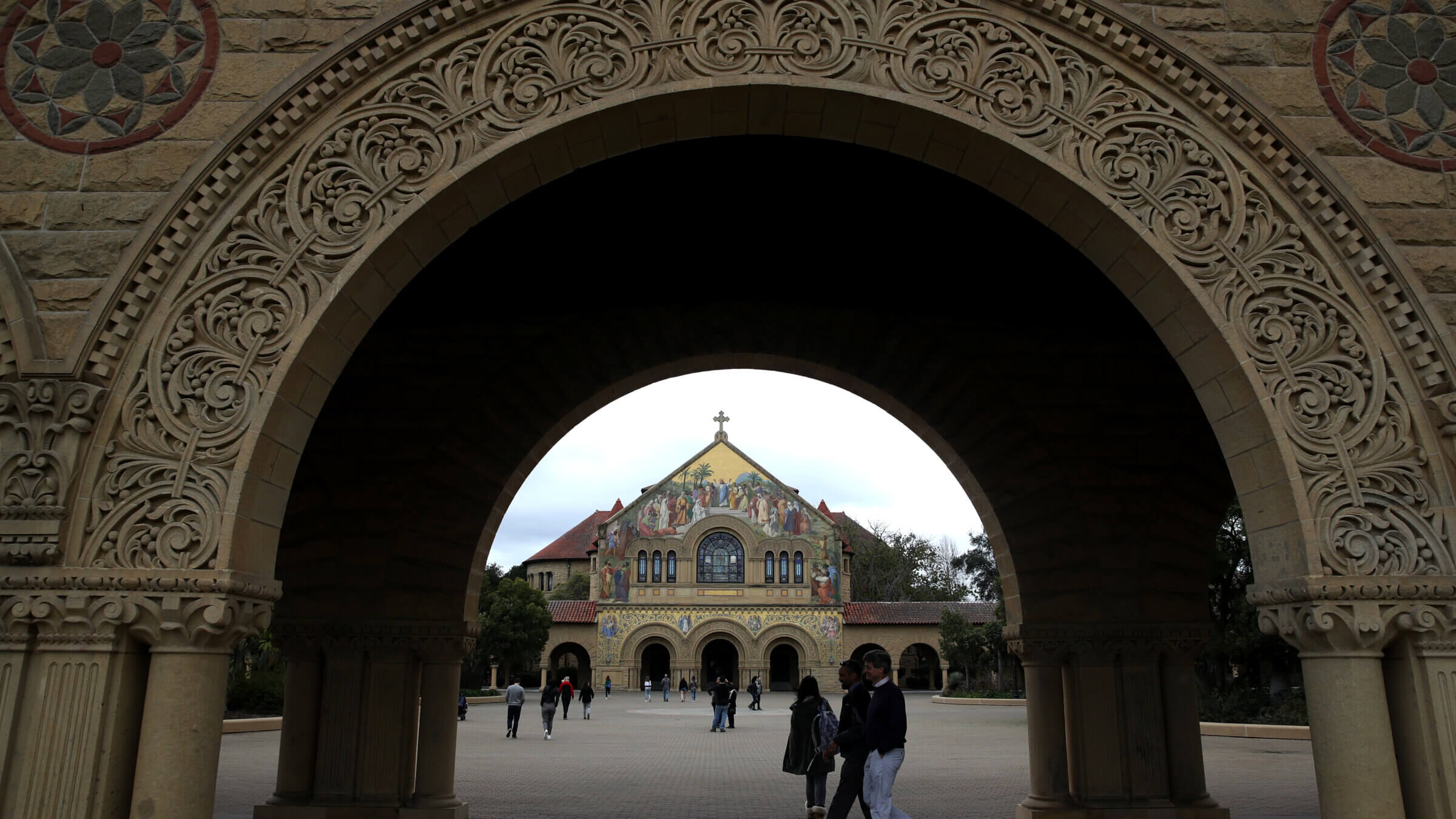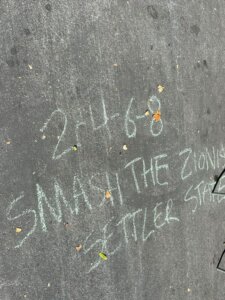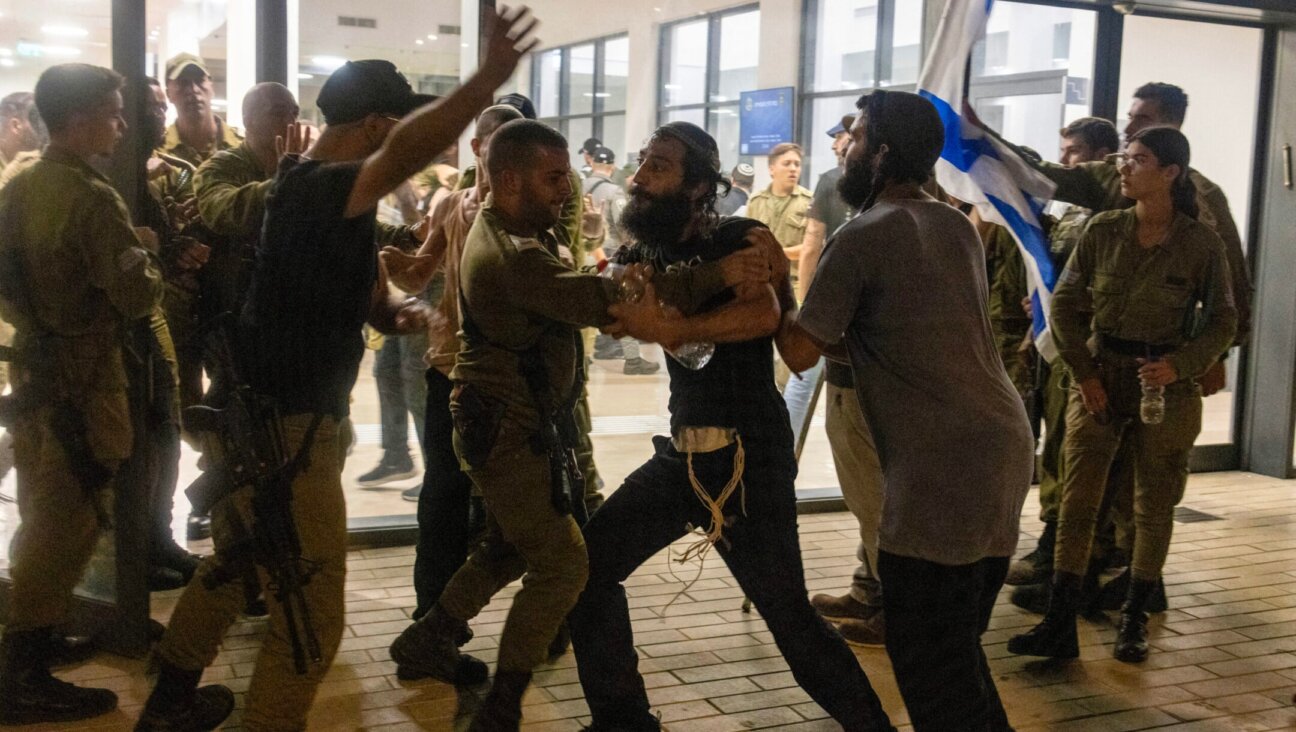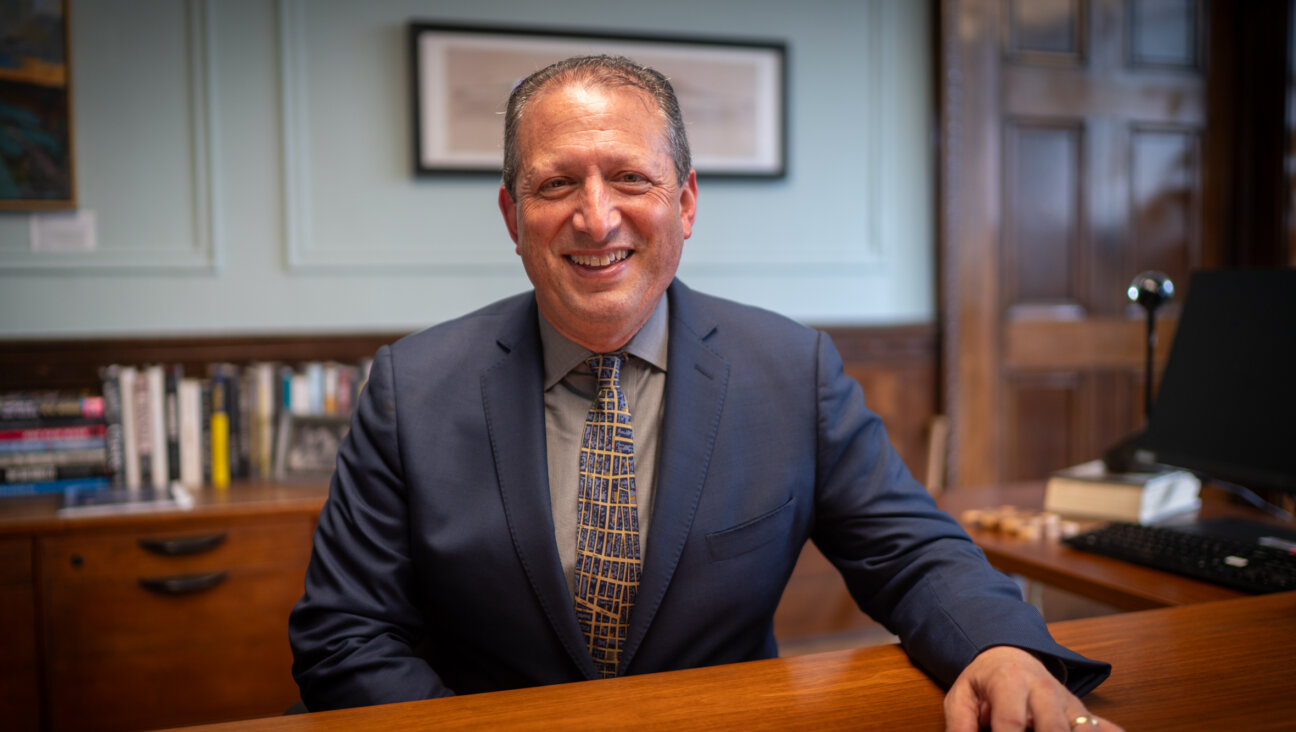Stanford instructor removed for targeting Jewish students as ‘colonizers’ after Hamas attack on Israel
Stanford officials were also criticized for neutral language in initially failing to unambiguously condemn Hamas

Students and visitors walk on the Stanford University campus in California. Photo by Justin Sullivan/Getty Images
An instructor at Stanford University has been suspended for what the president and provost called “identity-based targeting” of students in connection with the Israel-Gaza war.
Rabbi Dov Greenberg, director of the Chabad Stanford Jewish Center, said he was told by three students who were in the room that the instructor asked Jewish and Israeli students to identify themselves during a session for a required undergraduate course called “Civil, Liberal and Global Education.”
The teacher told the Jewish students to take their belongings, stand in a corner, and said, “This is what Israel does to the Palestinians,” Greenberg said, citing the student accounts. The instructor then asked, “How many people died in the Holocaust?” When a student answered, “Six million,” the lecturer said, “Colonizers killed more than 6 million. Israel is a colonizer.”
Stanford President Richard Saller and Provost Jenny Martinez sent a letter to the university community on Wednesday that mentioned the removal of the instructor from teaching duties but did not provide the details of the incident.
The instructor “addressed the Middle East conflict in a manner that called out individual students in class based on their backgrounds and identities,” the statement said.
That statement followed an earlier letter from Stanford officials that faculty from Stanford and Hebrew University had criticized as being too neutral on the situation in Israel.
The second statement from the president and provost specifically condemned the Hamas attacks as a “moral matter.”
The statement from Saller and Martinez said the incident with the instructor was under investigation. The university’s media relations office declined to confirm or provide more details, citing it as a “personnel” matter. The instructor was a teaching assistant, not a faculty member.
The instructor did not immediately respond to an email inquiry from the Forward sent Thursday.
Students were afraid to speak up
Greenberg, the Chabad rabbi, said the students he’d spoken to were afraid to speak up in class out of fear that they would be penalized grade-wise. “What are they going to do — get in a fight with their teacher at Stanford?” he asked. But he said all three were traumatized by the experience. The teacher “didn’t say anything that happened to the Israelis,” Greenberg said. “He ignored that. He said, ‘Hamas is a legitimate representation of the Palestinian people. They are not a terrorist group. They are freedom fighters. Their actions are legitimate.’”
The rabbi added: “He’s saying Israel is worse than the Nazis and Hamas is innocent. This is what Jewish students face at Stanford and other places. They’re feeling isolated, under attack and threatened.”

The Stanford Daily reported Tuesday that pro-Palestinian banners went up on campus over the weekend, with one reading, “The Illusion of Israel is Burning,” and another showing a Palestinian flag and the words, “The Land Remembers Her People.” The Daily said the banners were taken down by Monday. Students reported seeing chalked anti-Israel slogans around campus.
An op-ed in the Daily by Stanford Students for Justice in Palestine described Saturday’s attacks in Israel as “part of the protracted struggle against settler-colonial oppression,” adding that “no conversation about Palestine can be conducted without the context of the decades of systematic oppression, discrimination and violence the Palestinian people have faced.”
The group condemned Israel’s attacks on Gaza as “illegal collective punishment under the Geneva Convention.”
Saller and Martinez’s initial statement, dated Monday, noted that many on campus “have been affected by the devastating events in Israel and Gaza, especially those who have family and friends in the region.”
In that statement, the officials expressed hope that the university’s mission would include “thoughtful opportunities for sharing knowledge” rooted in “care for one another as members of a common intellectual community.”
Demanding an unambiguous condemnation of Hamas
In response, dozens of faculty signed a letter asking for an “unambiguous condemnation” of the Hamas attacks. Hebrew University President Asher Cohen sent a letter to his Stanford counterpart criticizing the initial Stanford statement as taking a “morally relativist approach regarding the massacre committed by Hamas” and failing to meet “the most minimal standards of moral leadership, courage, and commitment to truth.”
The follow-up statement from Saller and Martinez, dated Wednesday, included a more straightforward condemnation of “all terrorism and atrocities” as a “moral matter,” including “the deliberate attack on civilians this weekend by Hamas.”
But the president and provost also emphasized the university’s commitment to “academic freedom” permitting “expression of controversial and even offensive views” in order to avoid “chilling freedom of thought and ideas.” The university’s policy is to “refrain from taking institutional positions on complex political or global matters,” they wrote, noting: “Maintaining university neutrality allows for our individual scholars to explore them freely.”
The second letter from Saller and Martinez also noted that there had been complaints about signs on campus expressing “views that many find offensive,” but they said that “controversial and even offensive speech is allowed except when it crosses the line into certain illegal categories such as threats or harassment.”
Marc Levine, regional director of the Anti-Defamation League’s Central Pacific office, said Stanford did the right thing by removing the instructor. “The reported identity-based targeting of Jewish and Israeli students in a class was unacceptable,” he said. “At a time when Jews are fearing for their safety worldwide, it’s critical we boldly call out anti-Jewish hate. Students — including Jewish students — deserve to feel safe and respected on university campuses.






















